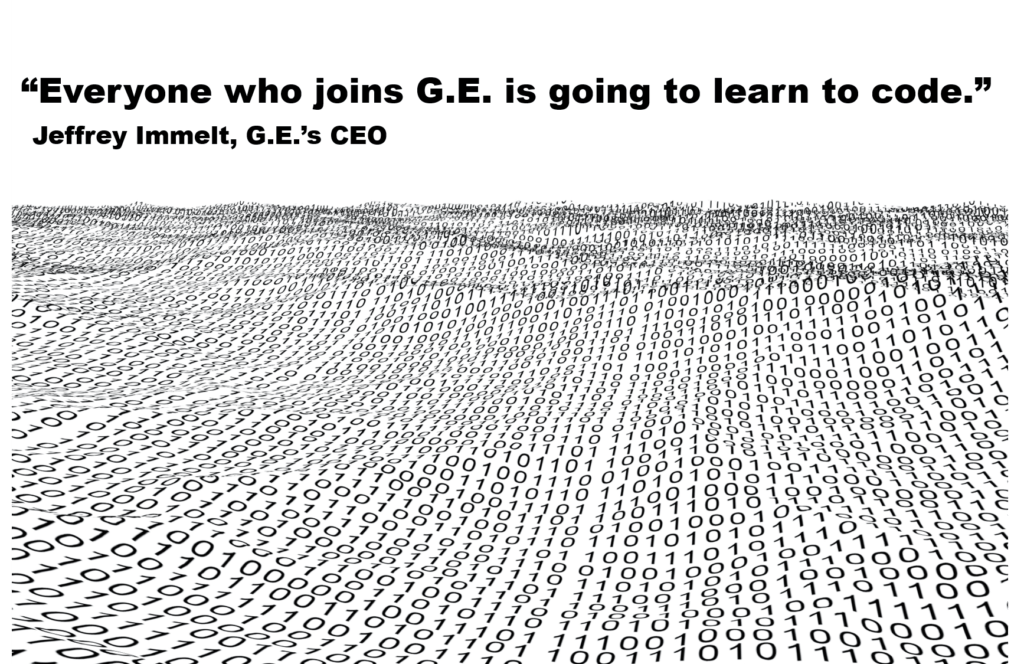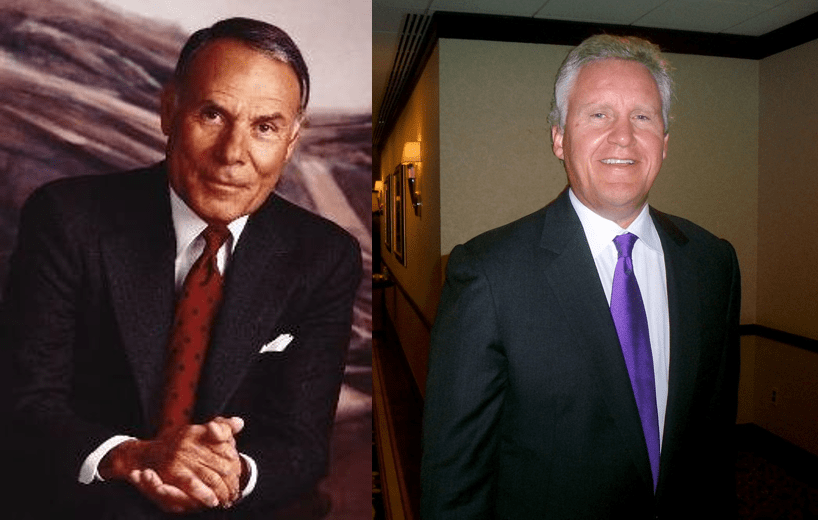
As we head into another Labor Day Weekend (yes, where did the summer go?), it’s a reminder that everyone on the team and in the organization can benefit from understanding the jobs of their co-workers. When you think about what makes a station go – the scheduling of the programming and traffic logs, the buzz of the air studio, the pressure in the sales cubicles, and the work load in the production studio – there’s a lot that goes into making radio.
I was reminded of that in a recent interview with General Electric’s iconic CEO, Jeffrey Immelt, who discussed what it’s taken to transition from a media and finance business into a bona fide “digital industrial company.”
Like the radio business, G.E. is like the old building growing ivy now trying to fit into a world of startups and open-space workplaces. To give you perspective, the company was born out of the laboratory of Thomas Edison, incorporated in 1892, and now coming up on its 125th anniversary. Having once made everything from light bulbs to TV programs, G.E. has had to reinvent itself in the truest sense of the word.
So what does it take to transform one of America’s great companies of the past into a company with technology as its foundation? Part of the answer may lie in something Immelt told Vanity Fair’s Stephanie Mehta and Emily Jane Fox. G.E. hires thousands of new employees each year. And when they start out with the company, they’re all going to participate in the same activity:
“Everybody who joins G.E. is going to learn to code. We hire 4,000 to 5,000 college grads every year, and whether they join in finance or I.T. or marketing, they’re going to code.”
That’s because code is the new language – the new DNA – of the company. It’s the fabric that makes today’s G.E. competitive and innovative, and it’s the common thread activity that can keep the company vital and relevant for another century.
When I read Immeldt’s story, I instantly flashed back on the first month I joined the Frank N. Magid company in Marion, Iowa. Back in the day, cranking out a research study involved the efforts of many different departments: questionnaire design and strategy, setting up the coding, conducting the interviews, hand keypunching in responses, creating cross-tabulations, running the tables on computers the size refrigerators, and writing and producing a final report.

And incoming research analysts had to spend a day in each of these departments, including conducting door-to-door interviews which Magid was famous for at that time.
And believe me when I tell you that some of these tasks weren’t especially fun to carry out. In a word, many were laborious and even tedious. But each one imbued me with an appreciation for what’s required to produce a competitive, accurate research product. And the exercise helped me empathize with all the employees in the building who worked together to design and implement quality studies.
As my tenure at Magid continued, I often found myself thinking back to that training period. It shaped the way I interacted with other people in the building, because at the very beginning, I actually did their jobs.
And so it could be in the radio industry. As I travel from market to market, cluster to cluster, and station to station, I run into many people who simply don’t have an appreciation for what others are doing to create competitive and compelling radio content, not to mention how it is sold, packaged, and marketed.
Imagine if every incoming employee at the station spent a few days experiencing each of these tasks:
- Answering the phones at the front desk
- Scheduling an hour of music
- Scheduling an hour of commercials
- Writing copy and producing a spot or promo
- Sitting in on a show (mic off) and answering the studio lines for an hour
- Making a sales call
- Working a station promotion/event
- Posting an article on the website
- Responding and acknowledging listeners on social media
- Shooting and editing a station video
Maybe you can think of some other station jobs, but the idea of a true orientation to radio for new hires might accomplish several things.
Like creating a true sense of empathy for what it takes to keep a station on the air, as well as respecting the labors of others.
And why radio broadcasting is still a magical industry.
Enjoy your Labor Day holiday, don’t work too hard, and we’ll be back with a new post on Tuesday.
- What To Do If Your Radio Station Goes Through A Midlife Crisis - April 25, 2025
- A 2020 Lesson?It Could All Be Gone In A Flash - April 24, 2025
- How AI Can Give Radio Personalities More…PERSONALITY - April 23, 2025




Fred, your post today reminded me of my own radio history. Like you proposed, that was the way I learned the radio business.
I’ve done every job in radio. So when I rose to the general manager – later upped to market manager – I knew what everyone’s job was and had a thorough understanding of what the demands and pressures of each job was. I also knew what it took to be successful.
Senior managers are there to make it possible for each individual to be successful in their position.
That’s how I think many of us in radio learned the business; from the bottom up.
It’s still the best way for anyone to learn their craft.
All too true, Dick. It gives you a sense of appreciation for what your people do and who they are. Thanks for the words of wisdom and for reading our blog.
Especially relevant as GE moves into Boston just now. In 1981 my first job was board op and weekend dj on an am/fm combo. The week I was brought in the station owner asked me into his office and asked me what I knew about engineering. I answered “almost nothing” and he said, “well you’ll learn it, because our first class engineer is working on the am signal for nighttime hours, so you are going to be the assistant.”
#11 Tune up a transmitter and drive an engineer all over the area to do field tests. Great post, Fred – and a must for anyone getting into the biz.
Thanks for the kind words, Tai. It’s so funny you mention engineering. When putting together the list of station tasks, I wanted to include something engineering related, but it’s tough to find a task that an incoming person could observe. And as you know, many stations no longer have an engineer on site. Appreciate your reading the blog.